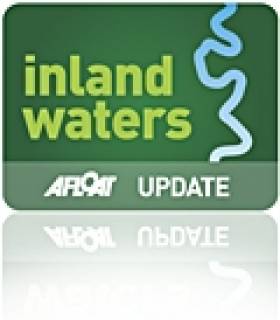Displaying items by tag: Drumcamoge
Fish Kill Investigation Underway on River Drumcamoge
#fishkill – Inland Fisheries Ireland (IFI) and both Limerick and Tipperary County Council are currently investigating a major fish kill which occurred on the Drumcramoge River on Monday 8th June 2015. On Monday afternoon, IFI was contacted by Limerick County Council regarding a reported pollution incident with a potential fish kill on the River Drumcamoge, a tributary of the Camoge, bordering the counties of Limerick and Tipperary.
IFI Officers attended the site and spent Monday evening and all day Tuesday walking the area both upstream and downstream of the initial site to assess the extent of the fish kill and polluted area.
4,300 fish mortalities have been estimated so far for a 2 ¾ kms stretch of prime nursery area between Ballycahill bridge and Knocklong. The majority of mortalities were juvenile trout and over 100 adult trout broodstock have also been recorded. Other species mortalities include salmon, crayfish, stickleback, minnow and stone loach.
The pollution has been attributed to an agricultural effluent and the source is unconfirmed at this time, but IFI is working closely with both Limerick and Tipperary County Council in investigating the matter.
Amanda Mooney, Director for the Shannon River Basin District, stated, "This is a heavy blow to the river especially with most of this year's juveniles wiped out in a prime nursery area. I am asking the public to report any suspected discharge into any river to the IFI 24 hour confidential hotline 1890 34 74 24.
"At this time of year with lower water levels, rivers and streams can come under significant pressure due to runoff from silage making and slurry spreading. Farmers and contractors are advised to be particularly vigilant".
Inland Fisheries Ireland (IFI) has a 24 hour confidential hotline number to enable members of the general public to report incidents - 1890 34 74 24 or 1890 FISH 24. This phone line is designed to encourage the reporting of incidents of illegal fishing, water pollution and invasive species.






























































